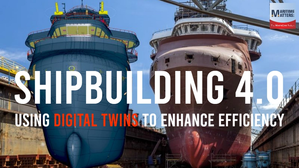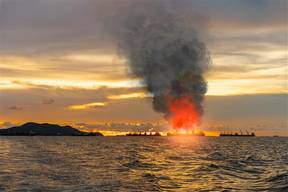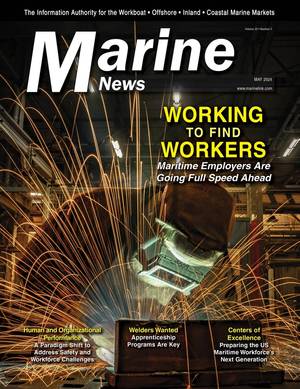Wärtsilä Set to Deliver Emissions-Cutting Tech for CMA CGM Ferries
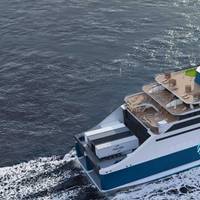
Technology group Wärtsilä has secured a deal to supply engines, fuel gas supply system and thrusters for two new Ropax ferries being built for French operator La Méridionale, a subsidiary of CMA CGM.The vessels, which have been specifically designed to minimize emissions, are to be built at the China Merchants Jinling Shipyard (Weihai), and will operate between Marseille and Corsica.For each ship, Wärtsilä will supply two 12-cylinder, one 10-cylinder and one 8-cylinder Wärtsilä 31DF engines.The two ferries will benefit from Wärtsilä’s NextDF technology…
Damen, Atal Solutions Join Forces for Green Refit of BAM Shipping’s Four Bulk Carriers
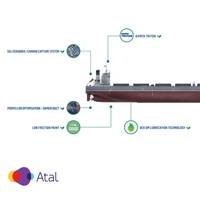
Damen Shipyards has partnered up with Atal Solutions and other parties to retrofit four bulk carriers for Bam Shipping with fuel-saving and emission reduction technologies.The industry partners will integrate eight different proven technologies, which will result in bulk carriers consuming at least 20% less fuel and reducing up to 99% greenhouse gases (GHG).The increased efficiency paves the way for these and other existing vessels to sail in compliance with recent regulations such as the Energy Efficiency Existing Ship Index (EEXI) and Carbon Intensity Indicator (CII).Additionally…
ABB Introduces Optimal Speed Routing to Improve Vessels Fuel Efficiency
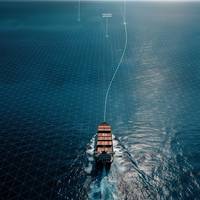
ABB has introduced a new feature to its Routing Services portfolio that will allow vessel owners to manage fuel costs by optimizing vessel optimal route and speed at the same time.As the first solution in the market equipped to optimize track and operating speeds simultaneously against anticipated weather, the feature is included in the ABB Ability Routeguard onshore routing service.This represents the first upgrade since ABB acquired the shipping business of DTN Europe BV and…
Damen and CMA CGM Join Forces to Boost Containerships Efficiency
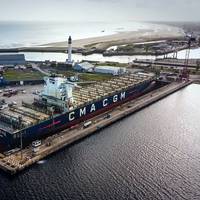
Around 10 of CMA CGM’s vessels are set to receive modifications and upgrades as part of the agreement the French shipping giant made with Dutch shipbuilder Damen Shipyards, aimed at increasing the efficiency of the ships.The upgrades and modifications will deliver fuel efficiencies of more than 10%, according to Damen.The upgrades will take place at Damen Shiprepair Dunkerque (DSDu) and Damen Shiprepair Amsterdam (DSAm), which between them have some of Europe’s largest dry docks…
MOL Installs Wind Measurement Device on RoRo Vessel in Fuel Savings Trial

Mitsui O.S.K. Lines (MOL) has installed a long-range wind condition measurement device on one of its RoRo vessels in a trial that aims to reduce fuel consumption and contribute to safe operations.MOL partnered with Metro Weather for a demonstration of Doppler LiDAR on Musashi Maru RoRO vessel on the route between Tokyo and Fukuoka.This is the first time in the world that a Doppler LiDAR has been installed on a large seagoing vessel, according to MOL.Using the Doppler LiDAR, MOL and Metro Weather will monitor real-time wind 3D conditions more than 10 km away from Musashi Maru.In addition…
Chemfleet to Fit 3 More Ships with Berg Upgrade for Fuel Efficiency
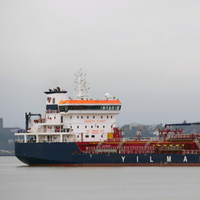
Turkish specialized ship manager Chemfleet has confirmed it would equip three more ships with an in-service Berg Propulsion upgrade after verifying 10% fuel savings with chemical tanker trials.According to Chemfleet, an in-service Berg Propulsion upgrade to control systems onboard the tanker YM Miranda yielded fuel savings of around 10%.Trials following the installation of Berg MPC800M control system onboard the 12,933 dwt IMO II chemical tanker have persuaded Chemfleet to upgrade three additional 6…
ScanReach ConnectFuel for J.J. Ugland Fleet
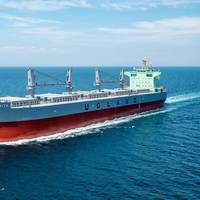
J.J. Ugland awarded a contract to ScanReach to deliver its ConnectFuel solution to optimize fuel consumption and reporting for J.J. Ugland's fleet.Onboard Wireless Connectivity (OWC) is the platform for real-time data collection, analytics and reporting to onboard and onshore users. OWC is unique in the ability to quickly install the wireless mesh network, as it consists of wireless mesh network nodes that can be mounted onto bulkheads by crew or installers, an onboard server to host the data and applications, and a Cloud endpoint.
Engine Air Compression System Boosts Fuel Efficiency 3-6%
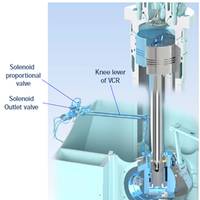
NYK will install a variable compression ratio system (VCR system) on two large LNG-fueled coal carriers to be built at Oshima Shipbuilding. The vessels are scheduled to be delivered by the end of 2025, and NYK reports this will be the first time for VCR systems to be installed on vessels, including existing vessels that use heavy fuel oil as their main fuel.The VCR system can adjust the air compression ratio in the engine combustion chamber to an optimal balance according to engine power and LNG fuel properties.
Rawabi Vallianz Offshore Services Equips Fleet with Fueltrax Fuel Management System
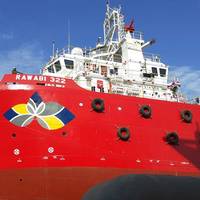
Rawabi Vallianz Offshore Services (RVOS) has chosen to outfit its entire fleet of vessels with the Fueltrax Electronic Fuel Management System (EFMS) to ensure accurate fuel usage transparency and emissions tracking.RVOS, a JV between Rawabi Holding, a diversified conglomerate of Saudi Arabia and Vallianz Holdings Limited of Singapore. It provides offshore support vessels and integrated offshore marine solutions to support the global energy industry.RVOS is initially outfitting nearly half of its fleet with the EFMS after a trial of the system that concluded in late 2021.
Case Study: Uni-Tankers Banks on Frugal Propulsion for Fuel Savings
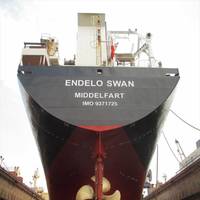
Ten months of test sailing using Frugal Propulsion on the tanker Endelo Swan shows a fuel saving of 12.2%, which is now driving Uni-Tankers to install the system on more ships in the fleet.Danish shipping company Uni-Tankers is reaping the rewards of Frugal Propulsion, a system which provides opportunities for optimizing fuel consumption on engine-driven ships.Frugal Propulsion, which is developed by the Danish start-up Frugal Technologies, was installed on the chemical/oil products tanker Endelo Swan during docking in June 2020.
BIMCO: 2020 and the Collapse of Bunker Fuel Markets
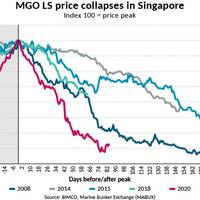
The sulfur regulation from the International Maritime Organization (IMO) that came into force on 1 January 2020 took the center stage in the shipping industry at outset of the new decade. Four months on, the spotlights have turned to the coronavirus and the OPEC+ oil price war.The outlook for global economic growth remains bleak as the world is faced with the largest recession since the Great Depression in the 1930s.Commodity prices have declined across the board and most recently…
Høglund to Supply FGSS for Tallink
Norwegean global marine automation and system integration expert Høglund Marine Solutions (HMS) will supply Fuel Gas Supply Systems (FGSS) to Rauma Marine Constructions (RMC) for Tallink Grupp’s newest LNG powered ferry, MySTAR.Høglund will work with Finnish tank manufacturer West Welding to design and supply the systems that will handle LNG onboard MySTAR, constructed by Rauma Marine Constructions. MySTAR will sail on Tallink's Tallinn - Helsinki route.The design and engineering of FGSS solutions is a key challenge for the future development of LNG powered shipping, particularly for passenger vessels. The process must take into account complex safety concerns stemming from impacts on the engine cooling system…
Ship Efficiency: Improve Hull Performance
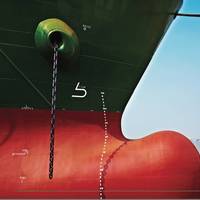
While owners have long recognized the link between clean hulls and lower fuel costs, lack of reliable data has slowed investments in optimizing hull performance. But with improved sensor technologies and data analysis tools, hull performance is getting a second look. Owners seeking to lower fuel costs and comply with pending regulations on emissions and invasive species often look to equipment manufacturers to meet their needs. From new efficient engine designs to alternative fuels, scrubbers to ballast water treatments systems, owners face some expensive decisions.
Nautilus Labs, Inmarsat Sign Agreement
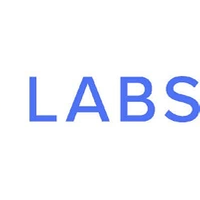
Nautilus Labs and Inmarsat have signed an agreement for Nautilus Labs to provide Inmarsat’s Fleet Data service.Nautilus Labs will use the Fleet Data API (Application Programming Interface) to help automate data collection as part of Nautilus Platform, a proprietary, fleet optimization UI (user interface) that provides shipping owners and operators with predictive analytics to reduce fuel consumption, allow for better decisioning, and meet international and local environmental standards - all in real time.Developed by Inmarsat and made commercially available earlier this year…
Retrofit Solution for LSF Engines
Chinese shipbuilding conglomerate China State Shipbuilding Corporation (CSSC) said that its worldwide equipment service subsidiary CSSC Marine Service Co (CMS) is using its expanded network of service stations to deliver a retrofit solution to engine starting problems that may occur with less viscous low-sulfur fuels (LSF).Some two-stroke engines using common-rail injection report problems reaching and maintaining high enough fuel rail pressure due to wear of fuel pumps, starting air problems or leaking injection control units.The concern is amplified when using fuels that are lighter and less viscous than heavy fuel oil, such as many of the very low sulfur fuel oil blends ship owners are likely to use to comply with IMO’s sulfur cap from 1 January 2020.
ABS Calls for New Tech in Marine Fuels
ABS Chairman, President and CEO, Christopher J. Wiernicki, mapped out the future of marine fuels, indicating that the 2050 targets will require technology beyond today’s state-of-the-art.“Technology advances of the next decade may entirely change our view of the future, but based on what we see today we can identify three developmental pathways for future fuels distinguished by the onboard technologies they require. These are: the LNG or light gas pathway, the bio/synthetic pathway and the alcohol and heavy gas pathway,” he said.“Within each of these pathways are many variables related to energy content, the state of storage or containment technology…
IRENA: Shipping Industry Must Cut Emissions
The International Renewable Energy Agency (IRENA) highlighted the importance of reducing shipping emissions and following the path towards a carbon-zero industry, in line with International Maritime Organization (IMO)’s sustainability targets.IRENA said that immediate action is required if the global shipping industry is to meet a target of halving its carbon emissions by the middle of the century.With heavy fuel oil covering 82 per cent of the sector’s energy needs, decarbonizing global shipping will play a critical role in achieving climate objectives, a new report by the International Renewable Energy Agency (IRENA) finds.The report…
Maersk Develops Ship Fuel from Alcohol
Danish shipping conglomerate A.P. Moller - Maersk has joined forces with Wallenius Wilhelmsen, BMW Group, H&M Group, Levi Strauss and Marks & Spencer to explore LEO, a blend of lignin and ethanol, as a potential future sustainable shipping fuel.The LEO Coalition, which also includes Copenhagen University, will consider the environmental and commercial viability of LEO fuel for shipping. Shipping accounts for 2-3% of global CO2 emissions, a proportion that is set to increase as global trade continues to grow at a sluggish but steady pace. As such, this industry has an urgent need to reduce its environmental impact.The marine sector has very different fuel requirements than automotive or aviation.
Norsepower Rotor Sails Saves Fuel
Finnish technology company Norsepower, along with project partners Maersk Tankers, Energy Technologies Institute (ETI) and Shell International Trading and Shipping Company Ltd., announced successful trial results of two Norsepower Rotor Sails onboard the Maersk Tankers product tanker, Maersk Pelican.The Rotor Sails are large, cylindrical mechanical sails that spin to create a pressure differential, the Magnus Effect, that propels the vessel forward; in this instance a Maersk Tankers’ Long Range 2 (LR2) product tanker vessel, said the company.The Rotor Sails deliver auxiliary wind propulsion to the vessel - which have operated in conditions ranging from tropical climate to arctic conditions in Europe…
QP Begins VLSFO Bunkering at Ras Laffan Port
State-owned oil company Qatar Petroleum announced the commencement of Very Low Sulfur Fuel Oil (VLSFO) bunker supply operations at Ras Laffan Industrial City (RLIC) Port.The VLSFO marine fuel offering has been initiated in advance of the International Maritime Organization (IMO) 2020 regulation for a 0.50% global Sulfur limit for marine fuels which will come into effect 1st January 2020.Qatar Petroleum, in conjunction with Qatar Fuel (Woqod), initiated bunkering services in Qatar in June 2017 with the importation of its maiden HFO cargo (RMG 380 CST 3.5% Sulfur) in order to cater for the bunkering needs of both Qatargas’ LNG fleet and other vessels calling to Ras Laffan and the region.From June 2017 through August 2019…
Data Gathered from Demonstration Ships in Asia
Fifteen demonstration ships in the Asia region have, to date, provided 68,517 sets of data relating to ship fuel consumption and ship optimum trim, said International Maritime Organization (IMO).It is this kind of data-gathering and analysis that is helping the regional Maritime Technology Cooperation Center (MTCC-Asia) deliver on its commitment to promote innovative technologies and operations to improve energy efficiency in the maritime sector.MTCC-Asia - one of the centers in the IMO-led, European-Union funded Global MTCC Network (GMN) project - held its Second Regional Workshop in Yangon, Myanmar (30 September-2 October).The data gathering project (which took data from five container ships…
GEO Installs Ulstein Blue Box in 2 Vessels
The Norwegian ship owner Golden Energy Offshore has decided to install Ulstein Blue Box on two of their vessels.The offshore service vessels for the global oil and gas service industry quoted ship owner Per Ivar Fagervoll as saying: “With Blue Box we will manage to reduce our fuel consumption and environmental footprint further, which is very important to us.”Golden Energy Offshore is actively pursuing environmental friendly solutions, and has a green profile. Together with Ulstein, they are now entering into a Blue Box pilot project on two of their vessels.“With this pilot project and the programs aligned with this agreement we will be enabled to consolidate, process and analyse data and target our focus on energy efficiency.
GreenSteam Acquires BMT Smart
Denmark-based GreenSteam, a majority owned company of BP, has acquired BMT’s data collection and performance optimisation subsidiary UK-based firm SMART. The marine efficiency software solutions provider is reputable in leveraging Machine Learning methodologies and next generation fuel saving platforms to stimulate the sustainable development of Shipping and World Sea Trade.The sale of SMART, a data collection and performance optimization software solution, to GreenSteam, follows a strategic business review by BMT to focus on its core Infrastructure, Defense and Security, Commercial Shipping and Environmental divisions and, as well,…


